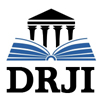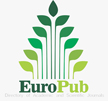RELEVANCE OF BASIC COMPETENCY OF AUTOMOTIVE LIGHT VEHICLE ENGINEERING EXPERTISE PROGRAM TO WORK COMPETENCY IN THE AUTOMOTIVE MECHANICAL INDUSTRY
Abstract
This research aims to: (1) know the basic competencies needed in the field of mechanical industri, (2) know the exist or absence of basic competencies taught in the TKRO expertise program but needed in the field of mechanical industri, (3) know the exist or absence of basic competencies that are not taught in the TKRO expertise program but are needed in the field of mechanical industri, (4) know the level of relevance of basic competencies in the automotive light vehicle engineering expertise program applied to mechanical work competencies. This research is a quantitative descriptive study with a survey approach. The subjects of this research are teachers who teach productive subjects on the competence of automotive light vehicle engineering expertise Bandung as well as 3 respondents from 3 different agencies. The data retrieval technique used in this study uses questionnaires. The analytical technique used is quantitative descriptive analysis with percentages. The results of this study show that: (1) there is relevance between the competence taught and the competence compiled by the government, (2) The number of competencies from schools that are less relevant to the industri there are 2 competencies, namely the competence to improve rims and present the results of evaluation of 2D and 3D sketches of orthogonal projection standards, (3) The number of basic competencies that have not been accommodated in the automotive light vehicle engineering expertise program to mechanical work competencies consists of 14 additional competencies, (4) there is relevance of the basic competence of the automotive light vehicle engineering productive program between schools, governments and agencies, (5) the level of relevance of basic competencies of automotive light vehicle engineering expertise programs to mechanical work competencies with percentage values (85.52%) which fall into the category is very relevant.
Keywords
Full Text:
PDFReferences
Akbar, F., Harjanto, B., & Rohman, N. (2020). Studi relevansi kurikulum kompetensi keahlian teknik kendaraan ringan di SMKN 5 Surakarta dengan kebutuhan dunia industri saat siswa melaksanakan prakerin. NOZEL : Jurnal Pendidikan Teknik Mesin, 2(3), 146-157.
Amin, A. (2019). Hubungan kompetensi sosial guru dengan interaksi edukatif dalam perspektif peserta didik. Al-Bidayah: Jurnal Pendidikan Dasar Islam, 11(01), 77-106.
Anisa, H. S., Supriatna, N., & Purwanto, D. (2021). Tingkat kesiapan peserta didik kompetensi keahlian desain pemodelan dan informasi bangunan dalam menghadapi dunia kerja (Studi Di SMK Negeri 2 Garut). Jurnal Pendidikan Teknik Sipil, 3(1), 75-84.
Faiqah, N. (2018). Analisis evaluatif kebijakan sekolah dalam meningkatkan kompetensi lulusan siswa SMK Muhammadiyah 2 Playen Yogyakarta. Jurnal Ilmiah Didaktika, 18(2), 132-152.
Haryati, F., Thamrin, A., & Nurhidayati, A. (2019). Relevansi kompetensi lulusan SMK kompetensi keahlian desain pemodelan dan informasi bangunan dengan kebutuhan dunia usaha dan dunia industri (Dudi). Indonesian Journal Of Civil Engineering Education, 5(2), 42-53.
Haryati, H. (2018). Pengembangan instrumen penilaian berbasis kompetensi pada praktikum pemrograman web di SMK. Jurnal Pendidikan, 6(2), 1-13.
Herlambang, D. S., Murtinugraha, R. E., & Bachtiar, G. (2013). Kesesuaian kurikulum program studi pendidikan teknik bangunan Universitas Negeri Jakarta dilihat dari kompetensi kerja berdasarkan Standar Kompetensi Kerja Nasional Indonesia (SKKNI) Sektor Jasa Konstruksi. Jurnal PenSil, 2(2), 73-77.
Karimah, M. (2021). Analisis visi, misi, tujuan dan kurikulum dua sekolah di Wonogiri. Jurnal Penelitian Bidang Pendidikan, 27(1), 1-7.
Marhendi, T. (2021). Penerapan uji kompetensi untuk meningkatkan kompetensi lulusan SMK Muhammadiyah 1 Purwokerto. Jurnal Pengabdian Teknik dan Sains (JPTS), 1(1), 27-32.
Nawali, A. K. (2018). Dampak penerapan kurikulum kementerian agama dan kurikulum pesantren terhadap peningkatan hasil belajar PAI di MAN Yogyakarta. Al-Ikhtibar: Jurnal Ilmu Pendidikan, 5(1), 555-575.
Novianto, A., Suherman, A., & Ariyano, A. (2015). Relevansi materi mata kuliah keahlian otomotif dengan materi mata pelajaran kompetensi keahlian teknik kendaraan ringan terhadap materi uji kompetensi keahlian standar bsnp. Journal of Mechanical Engineering Education, 2(1), 12-22.
Perdana, N. S. (2019). Analisis permintaan dan penawaran lulusan SMK dalam pemenuhan pasar tenaga kerja. Refleksi Edukatika: Jurnal Ilmiah Kependidikan, 9(2), 172-181.
Prihantoro, C. R. (2017). Kemampuan manajerial kepala smk program keahlian otomotif dan keterserapan lulusan di dunia kerja. Journal Innovation of Vocational Technology Education, 6(1), 457-462.
Ramadhan, M. A., Iriani, T., & Handoyo, S. S. (2013). Relevansi kompetensi lulusan SMK khususnya kompetensi keahlian teknik gambar bangunan dengan kompetensi di dunia kerja. Jurnal PenSil, 2(1), 1-10.
Ramdani, M. V., Hamdani, A., & Suhayat, D. (2018). Studi relevansi mata pelajaran produktif paket keahlian teknik gambar mesin dengan standar kompetensi kerja nasional indonesia di SMK. Journal of Mechanical Engineering Education, 4(2), 198-205.
Sartika, D. (2019). Pentingnya pendidikan berbasis stem dalam kurikulum 2013. JISIP (Jurnal Ilmu Sosial dan Pendidikan), 3(3), 89-93.
Setiowati, E. (2016). Memahami kriteria kualitas penelitian: Aplikasi pemikiran penelitian kualitatif maupun kuantitatif. Jurnal Vokasi Indonesia, 2(2), 42-49.
Sucipto, T. L. (2021). Sosialisasi potensi integrasi konsep green building (GB) pada kurikulum sekolah menengah kejuruan bidang bangunan. Jurnal Ilmiah Pendidikan Teknik dan Kejuruan, 14(1), 12-15.
Titin, T. (2016). Efisiensi angka pengangguran melalui lulusan SMK dengan sistem pendidikan berkarakter (enabler, builders dan engineer) di Jawa Timur. Jurnal Ekbis, 15(1), 795-805.
Yuliawati, L. (2021). Pentingnya landasan psikologis dalam pengembangan kurikulum tingkat satuan pendidikan. Jurnal Inovasi Kurikulum, 5(1), 99-112.
DOI: https://doi.org/10.17509/jmee.v8i2.40886
Refbacks
- There are currently no refbacks.
Copyright (c) 2021 Journal of Mechanical Engineering Education

This work is licensed under a Creative Commons Attribution-ShareAlike 4.0 International License.
Indexed by:
ISSN: P 2356-4997
View My Stats
 Journal of Mechanical Engineering Education (Jurnal Pendidikan Teknik Mesin)
Journal of Mechanical Engineering Education (Jurnal Pendidikan Teknik Mesin)







